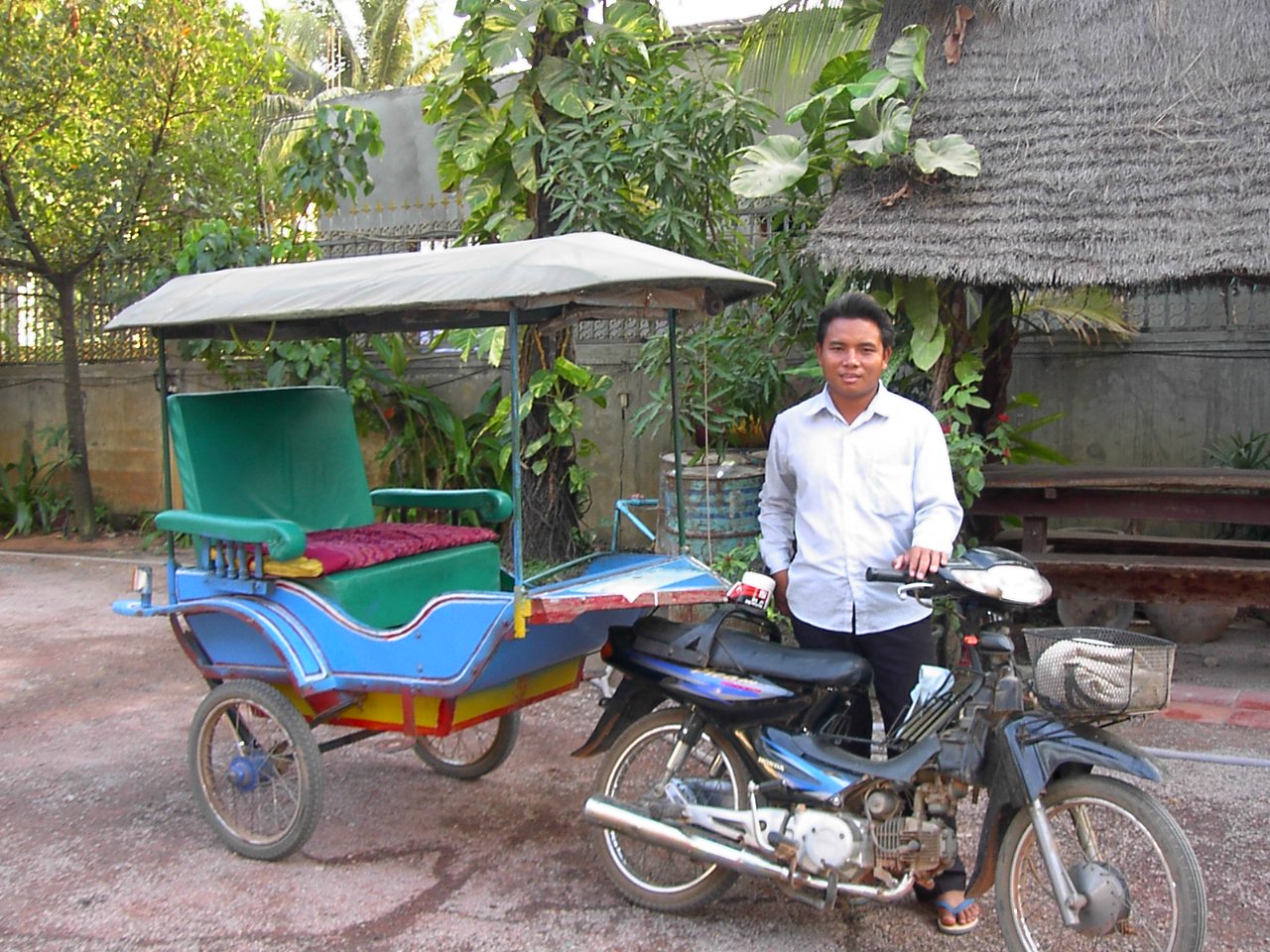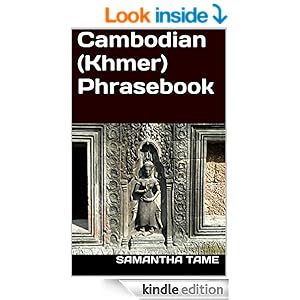If you're planning a trip to Cambodia for business or pleasure, you should learn a few key phrases so that you can be polite to the local people you meet. Don't worry too much about pronunciation at first - Cambodian people are warm and friendly, and many will just appreciate you making an effort.
1. Suosdey = hello
A friendly greeting. Variations: Arun suosdey = good morning, reatrey suosdey = goodnight.
2. Jom reap suar = hello (formal)
A more formal way to say hello, to someone in a position of authority or an older person.
3. Sok sabai = how are you?
Literally: are you safe and happy? It can also be used when saying goodbye to someone, by way of wishing them well.
4. Knyom sok sabai, joh neak wenh? = I'm fine, how are you?
Note: neak is an informal word for you, and should only be used with friends. To show more respect to someone you don't know, use bong.
 |
| Try it on a tuk tuk driver. |
5. Baat/cha = yes
Say baat if you're a man, and cha if you're a woman.
6. Ort dte = no
The same for both genders.
7. Som = please
Use it at the start of a sentence when asking for something, for example som kiet luy = bill please
8. Or kun = thank you
Or kun jran means thank you very much.
9. Som dtos = sorry
Use it to apologise or to say excuse me.
10. lia haie = goodbye
The formal version is jom reap lia.
Want to learn more? Why not invest in my Cambodian (Khmer) Phrasebook for Kindle. It contains all the key phrases for starting to learn the Cambodian language. Translations were provided and checked by native speakers. What's more, $1 for every copy sold is donated to Kantha Bopha hospitals who do amazing work for women and children in Siem Reap and Phnom Penh.
Go to Amazon for more details or to download your free sample today.









